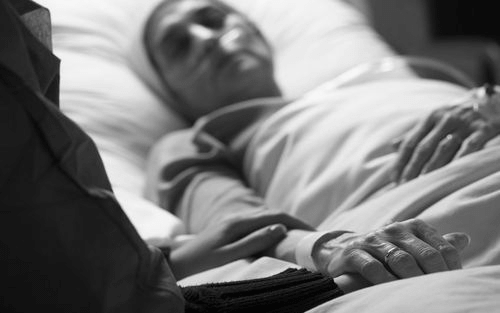Contributor: Jesse Maier
Previously, we explained that a health care directive is a necessary addition to your estate plan so someone can make medical decisions for you if you are not able to do so. Next, we showed you a real-life example of how a healthcare directive can simplify life for you and your family when something unfortunate happens. To close the loop on health care directives, the final topic is: what happens if you don’t have a health care directive, and you have lost the ability to make your own medical decisions?
GIANT CAVEAT: You should not need to know the answer to this because you should already have a health care directive. If you do not have a health care directive, get one.
Now, if you do not have a health care directive, not all hope is lost. In North Dakota, certain people are given priority to make medical decisions for you if you are not able to make decisions for yourself. Let’s go through the list, and we will circle back at the end.
The following people, so long as a physician determines have had significant contacts with you, will have priority to make medical decisions for you:
- Your health care agent (health care directive);
- Your Guardian or Custodian (see this blog for a brief procedure on seeking a guardianship);
- Your spouse who has maintained significant contacts with you;
- Your children who have maintained significant contacts with you;
- Your parents or step-parents who have maintained significant contacts with you;
- Your adult siblings who have maintained significant contacts with you;
- Your grandparents who have maintained significant contacts with you;
- Your grandchildren who have maintained significant contacts with you;
- Any of your relatives or close friends who have maintained significant contacts with you.
North Dakota Century Code § 23-12-13
As you can see, it is likely someone in your life can make medical decisions for you even if you do not have a health care directive. So then, what is the point of a health care directive?
First, medical physicians are trained in medicine, not whether you have maintained significant contacts with someone (legal concept). Whether someone in the above list is granted the power to make a medical decision for you rests in the hands of a medical physician. Lawyers should not perform surgery. Physicians should not make legal judgments.
Second, if you would have intended for the priority of the above list to be changed, it does not matter. Once you need a health care directive and do not have it, the above list is what you are stuck with. If, for example, you want to name one of your children over the others, you need a health care directive.
Third, if someone with priority to make medical decisions for you objects to a type of treatment, the physician cannot go to someone else for a second opinion. You need to name health care agents that understand and will carry out your medical wishes.
Fourth, consider the stress that the above list will put on someone. When someone knows they are named as a health care agent, we always recommend you have an unpleasant conversation with the health care agent to ensure that they understand your wishes, are able to clarify any points, and are able to determine whether they even want to be responsible for the medical decisions. The health care agents are given so much opportunity to prepare that should it ever be needed, the health care agent has clear marching orders. That is not the case with the above list. Someone appointed based on the above list is going to have to struggle with what your requests would have been, what is best for you, and perhaps what other family members think should be done. Being a health care agent is a hard job that comes with hard choices to make. You owe it to your friends, family, and yourself to layout your health care road map so that there is no question as to your wishes if you are ever unable to make medical decisions for yourself.
In short, if you do not have a health care directive, the state will find someone to make decisions for you. This is much less than ideal. Get a health care directive.
If you have any questions regarding health care directives, guardianships, or estate planning in North Dakota, give us a call at 701-297-2890 or email us via the contact form below.










